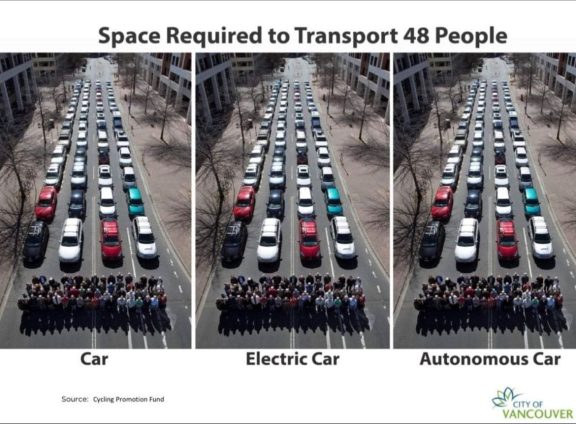
EVs and Cities: Part 3
12 June 2022
In this final part of the three-part series on EVs, I want to expand on why electric cars are a necessary but not sufficient tool in the decarbonisation of our cities.
As a flagged in part two, unless electric cars are paired with high-quality, high-frequency, cheap public transit and safe, well-connected bikes and footpaths then they risk making our cities less liveable and more congested, energy-hungry places.
As urban planning expert Brent Toderian states: “I’m not saying EVs aren’t part of the solution, but the main goal HAS to be less driving and fewer cars.”
EVs alone will most likely lead to more driving and more congestion as this graphic amusingly illustrates.
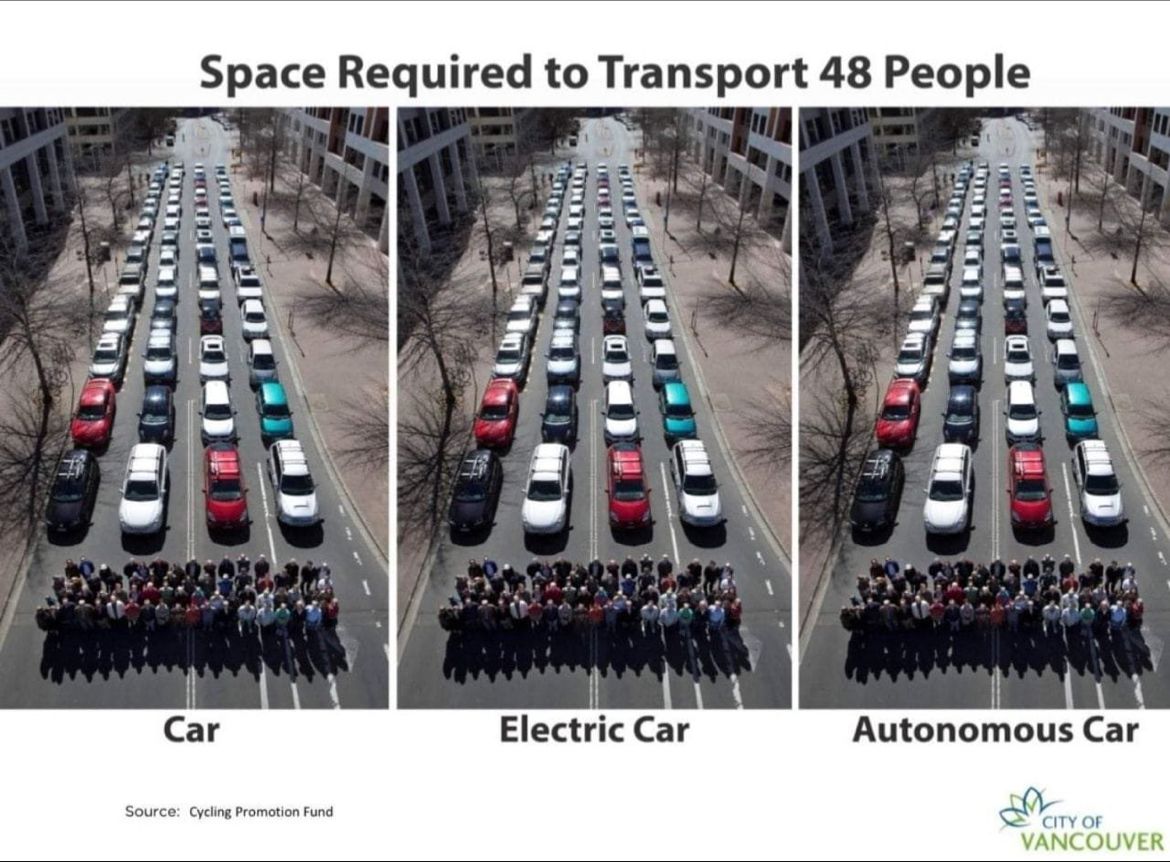
We don’t just need cleaner, greener, more efficient cars, we also need cities that give us non-car travel choices and are designed to minimise the need to travel by car to undertake everyday non-discretionary activities.
Electric cars alone, in addition to being a challenge to better connected, more liveable cities, will also provide a huge challenge to our energy system. Let me explain with some rough numbers:
The average car in Australia does a bit less than 40km a day. In your average electric car travelling this distance will use about 8kwh of power.
If all of WA’s 2.3 million cars went electric it would mean that WA would need an extra 18.5 million kWh of power a day or 6,758 million kWh a year. That’s a huge amount of power.
To put this in context the average Australian house currently uses 17kwh a day. Assuming an average of 2 cars per household EVs could potentially double WA’s residential power demand.
As this graphic from Ray Wills shows this could happen quicker than many expect:
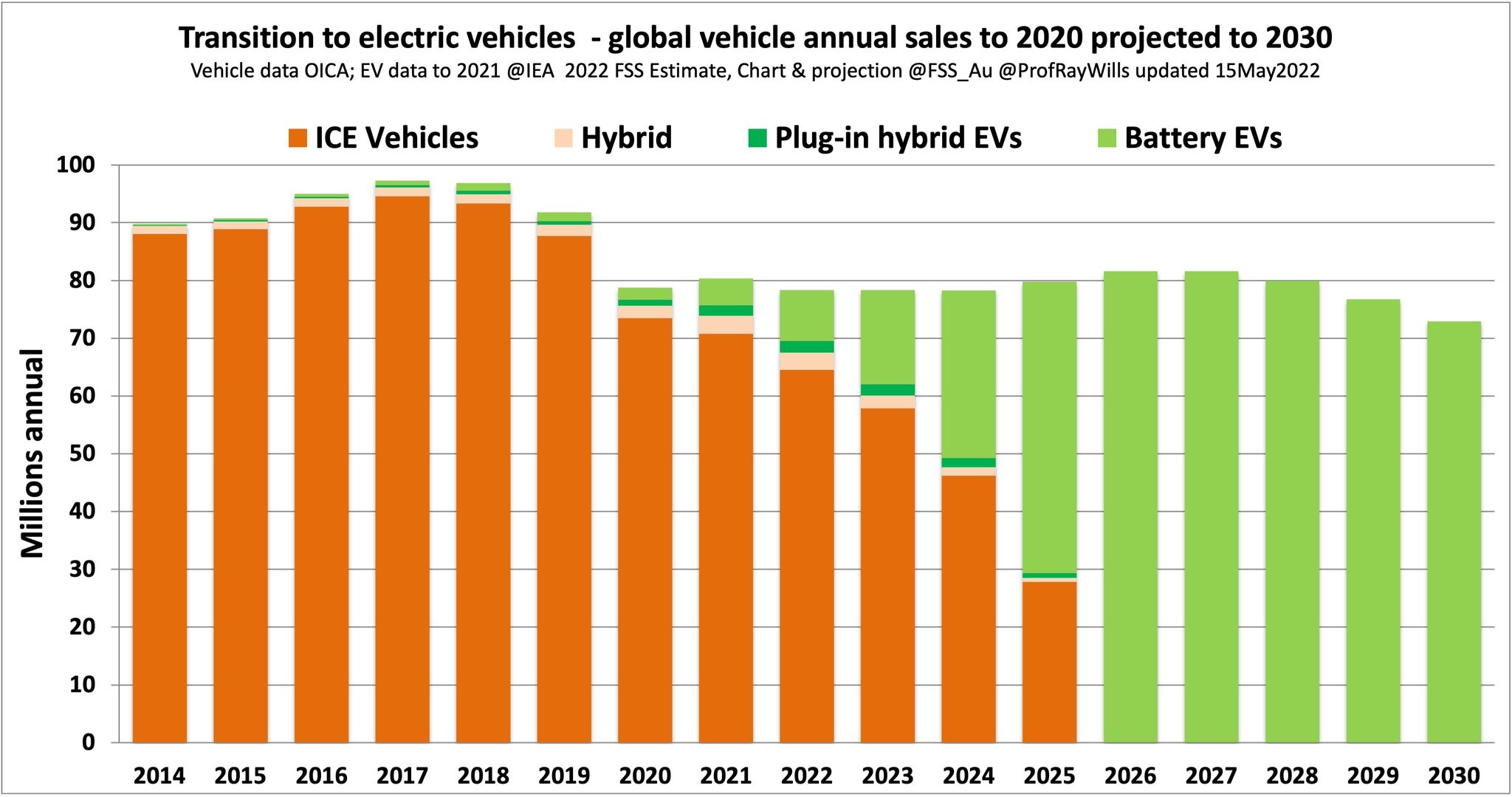
If these car kilometres were instead done on an e-bike or similar e-mobility device then it would require less than 5% of the energy.
This brings me to my central point – we need to expand the electrification of transport conversation beyond the current focus on electric cars to e-bikes and e-mobility generally.
As Simon Kuper of the Financial Times says in: “Stop Ignoring E-bikes” https://www.treehugger.com/stop-ignoring-ebikes-5324307
“The electric bicycle is a game-changer… global sales of e-bikes are projected to reach 40 million next year, compared to 9 million for electric vehicles. Globally, most trips are less than 10 kilometres, which e-bikes can cover within half an hour.”
While I love electric cars it is good to remember that the best car really is the one you don’t need.
So, I want to finish this short blog series on EVs to make the case that it’s time for WA to not only encourage and prepare for the arrival of electric cars but to also get serious about e-bikes and e-mobility along with more electric public transport including light rail/trackless trams.
When we combine a wide range of electric vehicles with fewer cars, a more compact city, a connected and protected bike network, and better environments for walking, then, only then, we will have a city that’s decarbonizing in a sustainable and efficient and healthy way.
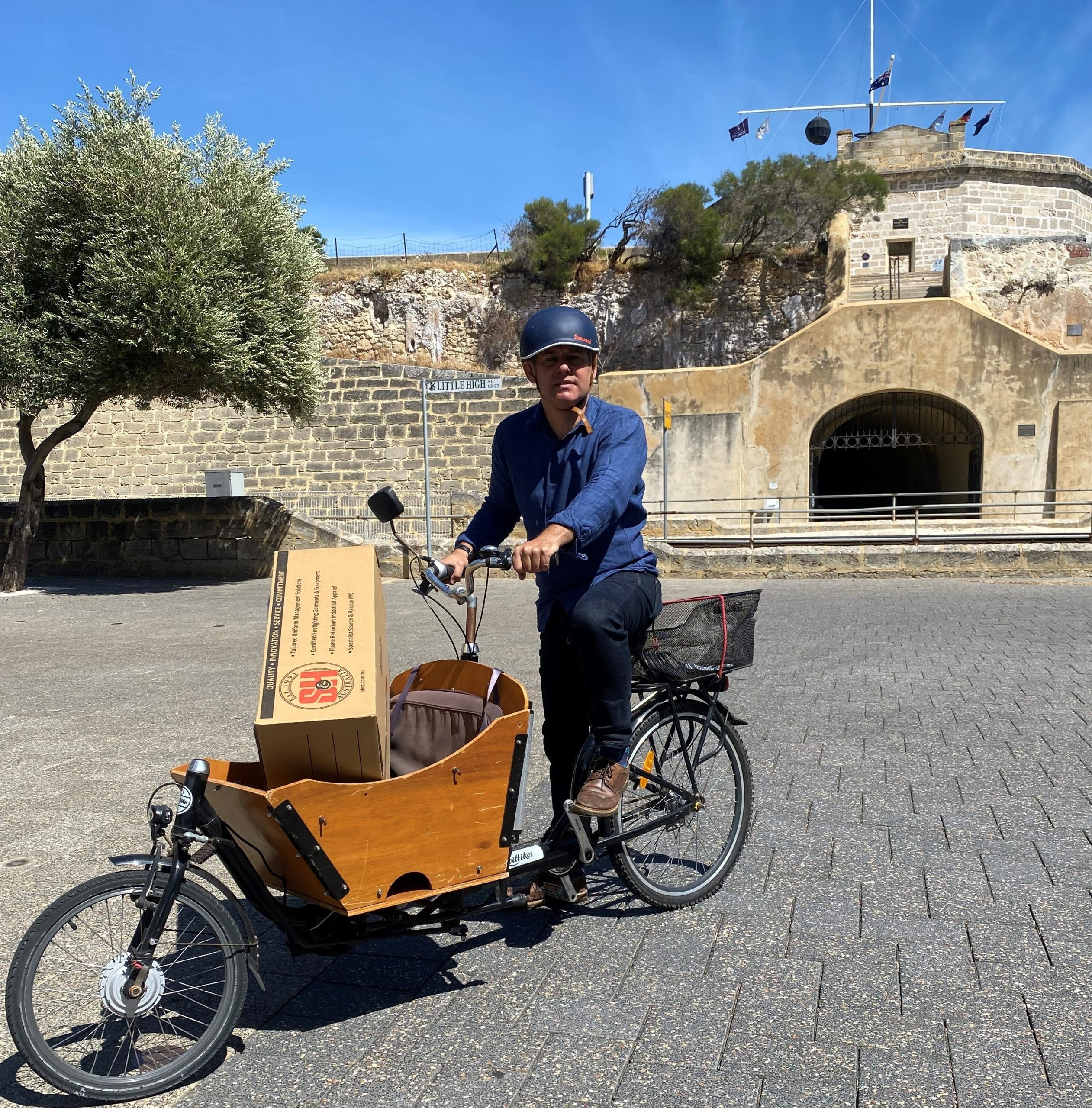

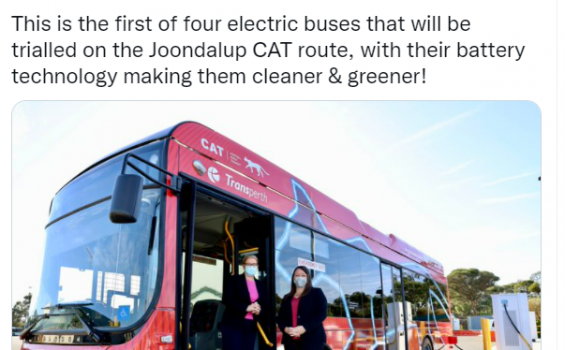
Discussion